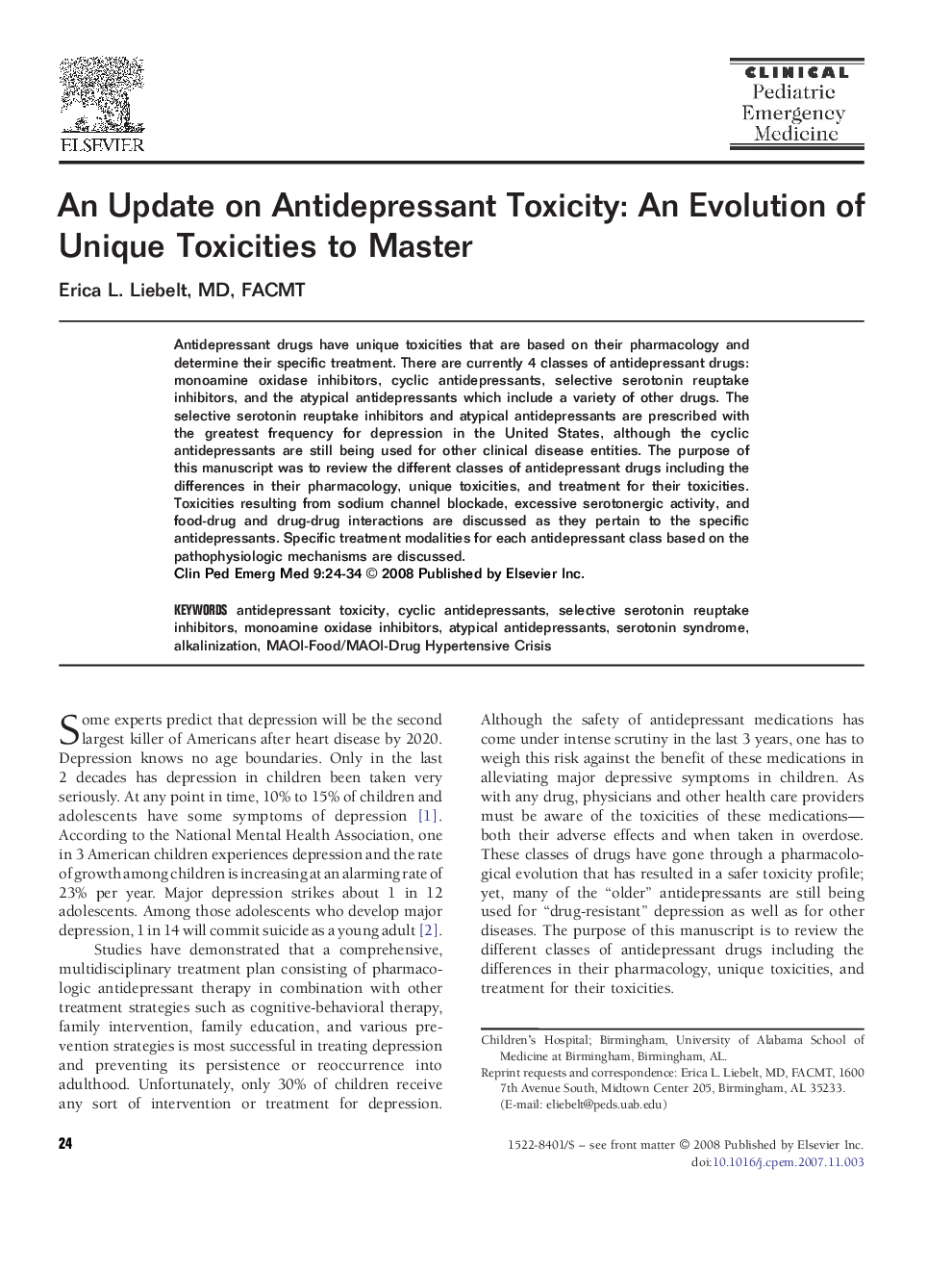| Article ID | Journal | Published Year | Pages | File Type |
|---|---|---|---|---|
| 3236169 | Clinical Pediatric Emergency Medicine | 2008 | 11 Pages |
Antidepressant drugs have unique toxicities that are based on their pharmacology and determine their specific treatment. There are currently 4 classes of antidepressant drugs: monoamine oxidase inhibitors, cyclic antidepressants, selective serotonin reuptake inhibitors, and the atypical antidepressants which include a variety of other drugs. The selective serotonin reuptake inhibitors and atypical antidepressants are prescribed with the greatest frequency for depression in the United States, although the cyclic antidepressants are still being used for other clinical disease entities. The purpose of this manuscript was to review the different classes of antidepressant drugs including the differences in their pharmacology, unique toxicities, and treatment for their toxicities. Toxicities resulting from sodium channel blockade, excessive serotonergic activity, and food-drug and drug-drug interactions are discussed as they pertain to the specific antidepressants. Specific treatment modalities for each antidepressant class based on the pathophysiologic mechanisms are discussed.
